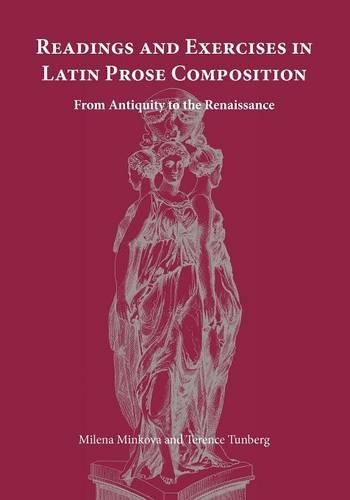
Readings and Exercises in Latin Prose Composition: From Antiquity to the Renaissance
(Paperback, New edition)
Publishing Details
Readings and Exercises in Latin Prose Composition: From Antiquity to the Renaissance
By (Author) Milena Minkova
By (author) Terence Tunberg
Focus Publishing/R Pullins & Co
Focus Publishing/R Pullins & Co
1st December 2005
New edition
United States
Classifications
Tertiary Education
Non Fiction
478
Physical Properties
Paperback
200
Width 177mm, Height 254mm, Spine 12mm
426g
Description
Readings and Exercises in Latin Prose Composition provides a refreshing approach for the standard Latin composition course offered at the college level. This text encourages the student to think in Latin through the process of reading unedited Latin selections and then composing in Latin, as opposed to the process of translating back and forth into English. The book offers a number of highly structured composition exercises that introduce students to a deeper understanding of Latin grammar and prose as well as to greater facility in reading and understanding it.
Reviews
This is an excellent little book filled with varied exercises in Latin composition. Prepared by the team that heads the Institutum Latinum at the University of Kentucky, it consists of twenty-five chapters that provide selections from Latin readings as models for composition...This book will stimulate teachers to employ its methodology on whatever authors they are reading in class. For all who would like to introduce more composition into their Latin reading courses, this text will certainly offer an attractive option. John E. Ziolkowski, The George Washington University, Bryn Mawr Classical Review 2004.06.28
Author Bio
Milena Minkova teaches Latin Composition, Latin Literature, and Classics at the University of Kentucky. She is the author of several textbooks in Latin, including "Reading and Exercises in Latin Prose Composition" for Focus Publishing. Terence Tunberg teaches Latin Composition, Latin Literature, and Classics at the University of Kentucky. He has won international prizes in Latin Composition. He is the author of several textbooks in Latin, including "Reading and Exercises in Latin Prose Composition" for Focus Publishing.
